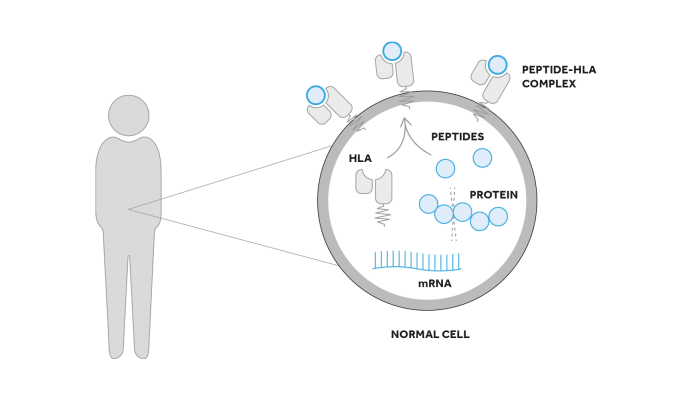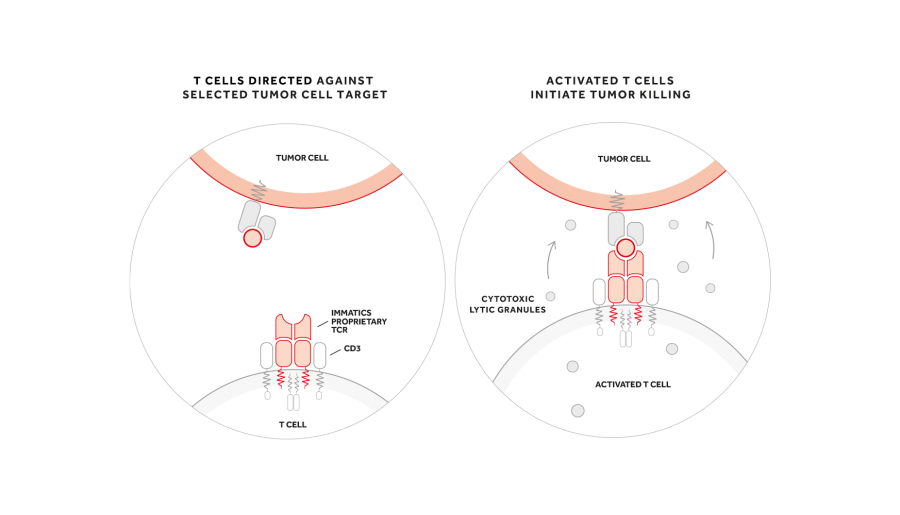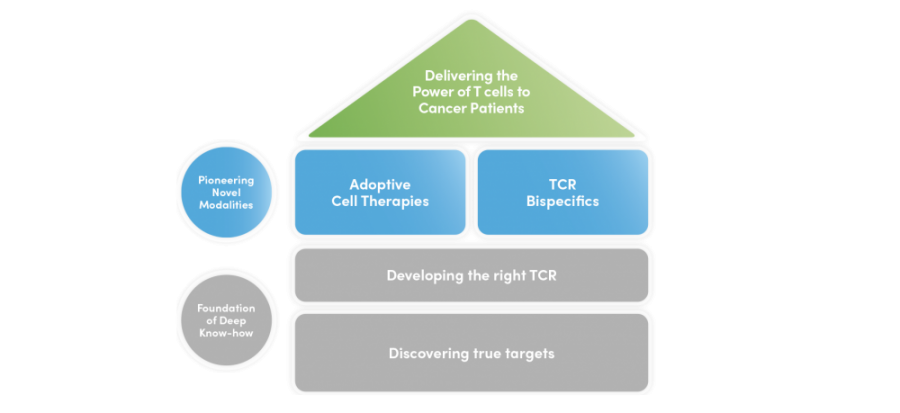Why T cells?
It is critical for the body’s immune system to be able to “see” inside of a cell, where intracellular pathogens such as viruses may be “hiding” or be alerted of changes that may occur when a normal cell transforms into a tumor cell. The human immune system has evolved an ingenious approach to achieve this feat: every protein of a cell is represented on the cell’s surface and presented to the immune system. This is accomplished by the breakdown of proteins inside the cell into short fragments called peptides, which bind to human leukocyte antigen (HLA) molecules, and are transported to be displayed on the cell surface.

How does it work?
A specialized type of white blood cells, called T cells, patrol the human body and distinguish normal healthy cells from infected or abnormal cells. T cells are equipped with special receptors called T cell receptors (TCRs) which can recognize HLA-bound peptides and thus are able to detect a potentially dangerous state of a cell. While this interplay between peptide-HLA (pHLA) complexes and TCRs forms a central basis of the adaptive immune system, it can also be employed therapeutically in TCR-based immunotherapies against cancer and other diseases.
For TCR-based immunotherapies against cancer, it is crucial to identify HLA-bound peptide targets that are presented on tumor cells and not on healthy cells. This enables activated target-specific T cells to recognize and attack these tumor cells, but not normal cells. Immatics believes that TCRs represent a new therapeutic opportunity for leveraging the power of T cells to fight cancer. Immatics’ investigational immunotherapies are designed to use the potency and specificity of TCRs to attack and kill cancer cells.

Immatics Approach to Solid Tumors
Immatics uses its proprietary suite of technologies to identify pHLA targets as the basis for a broad range of potential TCR-based immunotherapies designed to overcome the current limitations in immuno-oncology. We believe this may be attributable in part to the lack of suitable cancer antigens, heterogeneity of the tumor, the immunosuppressive environment of certain solid tumors and the cancer cells’ escape mechanisms.
Unlike CAR-T therapy and current antibody-based approaches, which can only target cell surface proteins, tackling pHLA targets enables the identification of otherwise inaccessible intracellular protein targets and thus significantly increases the diversity and novelty of the targets Immatics can pursue. Such intracellular targets are generally recognized as one of the most important keys to unlock hard-to-treat cancers, particularly solid tumors. Immatics’ product candidates are designed to use the potency and specificity of proprietary TCRs to attack and kill cancer cells and, in the case of solid tumors, invade the tumor, overcoming significant hurdles for current immuno-oncology approaches. Based on these TCRs, Immatics develops Adoptive Cell Therapies and TCR Bispecifics against cancer-specific targets for patients across a broad range of tumor types and disease stages.


